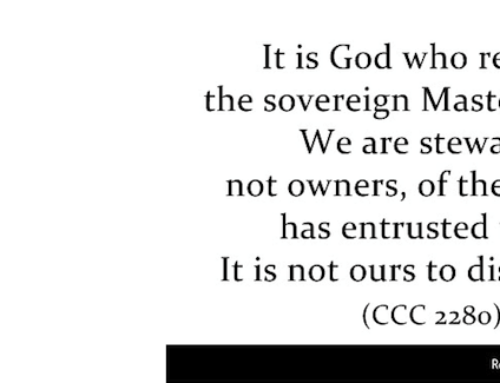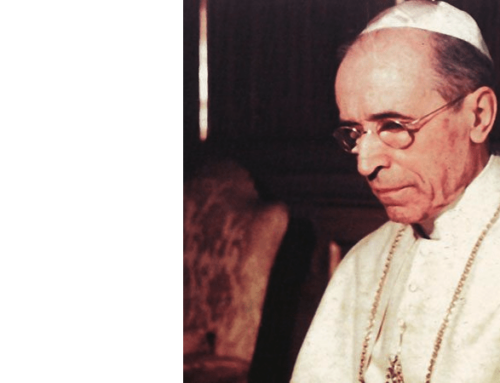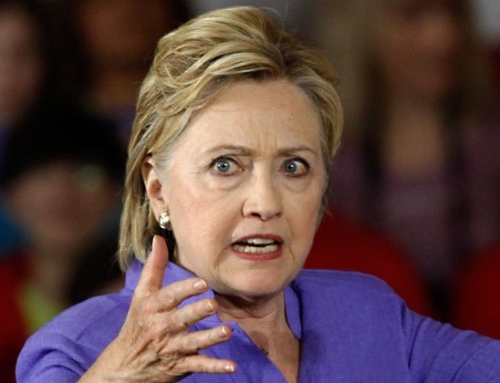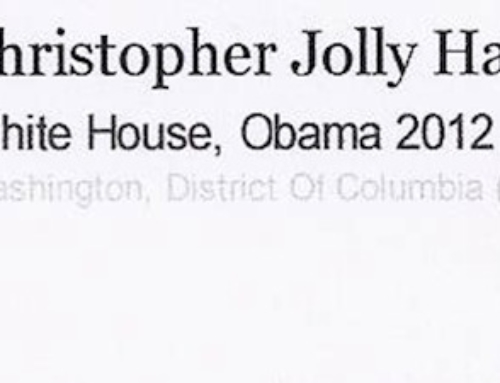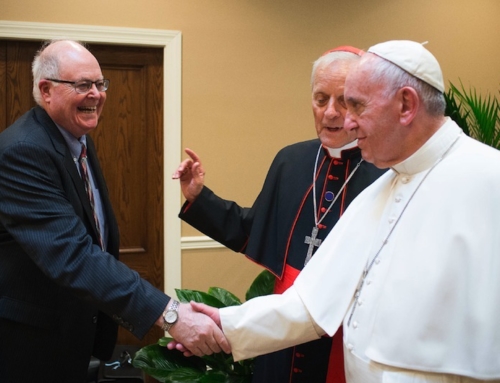Kenneth D. Whitehead
September 2008
Chaput, Charles J., O.F.M. Cap., Render Unto Caesar: Catholic Witness and American Public Life, New York: Doubleday, 2008.
Denver Archbishop Charles J. Chaput is one of the American Catholic bishops today who most nearly approximates the ideal of what the Second Vatican Council said that a Catholic bishop ought to be, namely, one who presides “in God’s stead over the flock of which they are the shepherds in that they are teachers of doctrine, ministers of sacred worship and holders of office in government” (Lumen Gentium, 20). In the Church, it is “in the person of the bishop,” the Council further taught, “that the Lord Jesus Christ, supreme high priest, is present in the midst of the faithful” (Ibid.). That’s “in God’s stead” and Jesus Christ present “in the person of the bishop”—obviously, a very tall order!
Archbishop Chaput was originally a religious order priest, a Capuchin, and he has admirably filled, in a distinctly Franciscan fashion, the multiple roles that his episcopal office lays upon him. His tenure in Denver has been marked by intelligence, vigor, and zeal. He has emerged not only unscathed, but with his reputation enhanced from the unfortunate vicissitudes of the past few years in the Church. But it is the difficult situation in which the Church in the United States finds herself today—in which a secular culture openly hostile to Christianity now finds ample justification for sidelining the Church and questioning the competence of Catholics to pronounce on the great questions of the day—that has motivated Archbishop Chaput to write this book underlining the importance of applying authentic Catholic teaching and witness to American public life.
Archbishop Chaput believes that “the Church has the duty to teach the world.” This book very ably sets forth a fair amount of what the Church specifically does have to teach the world in the conditions that Catholics in America face today. For if the Catholic Church is not without her own problems, an increasingly wayward and morally decadent America is surely in much worse shape; and, moreover, often seems incapable of even identifying what has gone wrong, much less being able to do anything about it.
Our bishop-author provides a brief summary of the current situation that characterizes America today as follows:
“Traces of our country’s Christian origins remain visible. Americans are broadly a people of faith who value religion, fair play and common decency…Yet there is another America, a kind of dark mirror image of our ideals and self-understanding. This is an America of ethnic and racial injustice, selfishness, consumer greed, and careerism, where popular culture grows increasingly brutish and vulgar. This is an America where half of all marriages end in divorce, where four of every ten children are born out of wedlock, and roughly a million more children are killed each year in the womb. Millions are forgotten and left behind in poverty in this America. Religion is increasingly belittled in the political conversation in this America, and the conversation itself has grown uncivil, indifferent, and unreasoned. Finally, in this America, ordinary citizens show a growing cynicism about the future of our common life together….”
Archbishop Chaput worries that America, increasingly detached from its Christian roots, has become secularized to the point where the country no longer possesses within itself the capacity to distinguish what belongs to Caesar and what belongs to God. A radically de-Christianized America now regularly denies in various ways what yesterday was a generally accepted common morality based on the Ten Commandments. Today the traditional morality that was once taken for granted is today explicitly rejected on secularist grounds. One is reminded of the once famous saying of the World War I French premier, the radical Socialist Georges Clemenceau: “Render unto Caesar the things that are Caesar’s—and everything is Caesar’s”!
Things may not quite have reached that point in America today, although we are surely not far from it. Hence nothing is more important to the future of America than the Catholic witness which Archbishop Chaput thinks is urgently necessary—and which he believes must come about through a renewal of the Catholic faith and a revitalization of Catholic practice that can and must lead to a re-evangelization of the culture. In his view, Christianity originally arose and took hold primarily because Christians believed and lived their faith, and were seen by the world to do so.
This book pursues this theme in the American context. The archbishop finds no incompatibility between Catholicism and the American system, properly understood. One problem has been, however, that too many Catholics have wrongly imagined that they had to cut and trim in order to accommodate their Catholicism to their Americanism. This is a problem that urgently has to be overcome by a return to the authentic sources of the faith.
The book contains a brief survey of Catholicism in America, along with an examination of how the American democratic system should be viewed from a Catholic point of view, and of what American Catholics should be doing to help revitalize their Church as well as American society and culture (very briefly, they should be more publicly professing and living their faith, and not allowing themselves to be deterred from bringing it frankly into the public square).
Archbishop Chaput is well versed in recent thought on church and state issues, as exemplified in the work on religious liberty by the late Father John Courtney Murray, S.J., for example, as well as in Vatican Council II’s Declaration on Religious Liberty, Dignitatis Humanae. As Pope Benedict XVI remarked during his recent visit to the United States, America can consider itself to be “the homeland of religious liberty,” and so it is both pertinent and timely that a knowledgeable American prelate should address this issue among others in this book.
Nevertheless, the challenge facing Catholics in America today is formidable. We need think only of the continuing tragedy and scandal of legalized abortion—which the Denver archbishop flatly declares “must be changed.”
If you have not read a good solid account of where Catholics publicly stand in America today, this is a book for you. Nobody has written a better account of the main public issues that must concern and engage American Catholics. Even if you have read other books along these lines, you will be interested in Archbishop Chaput’s “take” on issues that must inevitably concern us all. It is exhilarating to find an American Catholic bishop thinking and writing in the vein he has adopted.
On the much publicized and vexed question of whether the Eucharist should be denied to pro-abortion Catholic politicians, Archbishop Chaput notes how “one of the ironies of the 2004 elections was the number of non-Catholics, ex-Catholics, lax Catholics, and anti-Catholics who developed a sudden interest in who should receive Communion and when.” Although he defends the policy of the American bishops that the decision about this question must be left to the individual bishop, he himself quite admirably describes how he would handle the question in his own archdiocese. He writes:
“As a bishop, what would I do if a Catholic public official—a person publicly acting against Catholic teaching on a grave moral issue like abortion, euthanasia, human cloning, or embryonic stem-cell research—presented himself for Communion? If the official is not from my local church (that is, the diocese I serve as bishop), and I receive no contrary guidance from his own bishop, I would not refuse him Communion. I would assume his honesty and goodwill. And I would advise my brother priests in the diocese to do the same.
“But what if he does belong to my diocese? As a bishop, I have a duty in charity to help Catholic officials to understand and support church teaching on vital issues. That’s never a matter for public theater; it’s always a matter of direct, private discussion. If that failed, I would ask the official to refrain from receiving Communion. If he still presented himself, I would publicly ask him not to take Communion, and publicly explain why to my people and brother priests. If he still persisted, then and only then, I would withhold Communion from him—because of his deliberate disregard of the right of other Catholics and the unity of the church.”
This is precisely the policy that Cardinal Ratzinger, before his election as Pope Benedict XVI, outlined for the American bishops. (Although it applies in the case of the individual bishop, it does not explain how some of the most notorious pro-choice Catholic politicians in America were apparently invited to receive Communion at Pope Benedict’s Mass in Washington, D.C.!)
On the question of whether Catholics could in genuinely good conscience vote for “pro-choice” candidates, Archbishop Chaput frankly says, “The answer is: I couldn’t. Supporting a ‘right’ to choose abortion simply masks and evades what abortion really is, the deliberate killing of innocent life. I know of nothing that can morally offset that kind of evil.”
Archbishop Chaput grants that, faced with two “pro-choice” candidates, the Catholic might make a judgment to support one of them as “the lesser evil.” Any such vote, however, would always in his view have to have a proportionate reason “grave enough to outweigh our obligation to end the killing of the unborn.” He asks: “What would such a ‘proportionate’ reason look like? It would be a reason,” he says, “that we could with an honest heart, expect the unborn victims of abortion to accept when we meet them and need to explain our actions—as we someday will.”
There is more of this, much more, in Render Unto Caesar. It is accessible to all, and it is to be hoped it will be widely read and taken to heart.
Kenneth D. Whitehead’s new book, Mass Misunderstandings: The Mixed Legacy of the Vatican II Liturgical Reform is soon to be published by St. Augustine’s Press. Mr. Whitehead is a member of the Board of Directors of the Catholic League.



